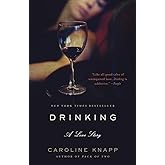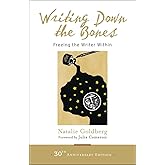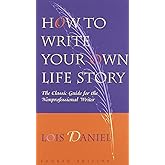
Download the free Kindle app and start reading Kindle books instantly on your smartphone, tablet, or computer - no Kindle device required.
Read instantly on your browser with Kindle for Web.
Using your mobile phone camera - scan the code below and download the Kindle app.

OK
 Audible sample Sample
Audible sample Sample 


The Memoir Project Lib/E: A Thoroughly Non-Standardized Text for Writing & Life Audio CD – Unabridged, June 13, 2011
- LanguageEnglish
- PublisherGildan Media Corporation
- Publication dateJune 13, 2011
- ISBN-13979-8200639793
The Amazon Book Review
Book recommendations, author interviews, editors' picks, and more. Read it now.
Similar items that may ship from close to you
Product details
- ASIN : B08ZBJFFRD
- Publisher : Gildan Media Corporation; Unabridged edition (June 13, 2011)
- Language : English
- ISBN-13 : 979-8200639793
- Item Weight : 8.3 ounces
- Best Sellers Rank: #2,291,221 in Books (See Top 100 in Books)
- #2,868 in Authorship Reference
- #11,851 in Books on CD
- #23,493 in Writing Reference
- Customer Reviews:
About the author

Marion Roach Smith has been teaching sold-out memoir classes for more than 20 years. She now teaches online. The author of four mass-market books, she is a former staff member of The New York Times and has written for The New York Times Magazine, Martha Stewart Living, Prevention, New York Daily News, Vogue, Newsday, Good Housekeeping, Discover, and The Los Angeles Times, among others. Marion has been a commentator on National Public Radio's All Things Considered, and was a long-time daily show host on Sirius Satellite Radio.
Customer reviews
Customer Reviews, including Product Star Ratings help customers to learn more about the product and decide whether it is the right product for them.
To calculate the overall star rating and percentage breakdown by star, we don’t use a simple average. Instead, our system considers things like how recent a review is and if the reviewer bought the item on Amazon. It also analyzed reviews to verify trustworthiness.
Learn more how customers reviews work on AmazonReviews with images
-
Top reviews
Top reviews from the United States
There was a problem filtering reviews right now. Please try again later.
Just one of many wry statements the author makes in this thoroughly readable, well-written resource. It's like she's gotten into every aspiring writer's head and puts our thoughts, fears, hopes, dreams on paper. But best of all she tells us what to do, what to practice and what not to do --if our goal is to write for more than an audience of just our loved ones.
Every memoir is essentially an argument, she says. Write with intent so that everything in it supports that argument or thesis.
And be interesting while you do it! How? that is the tricky part and she shows her own examples of stories that come alive with pertinent details.
Perhaps her most valuable advice is this simple equation to keep in mind as you write...
Your story is : X illustrated by Y to equal Universal Truth.
So the best memoirs are not about YOU, but about everybody.
I bought her book to help me write my book which is far more difficult than I thought it would be, just as she observes. (But now I know that at least I am in the good company of brain surgeons. :)
I especially like the examples she inserts "showing not telling " us about how to make scenes come alive.
Especially useful is how she describes what to cut. She tells a fascinating story about her mother that did not make it into her first book which was about caring for a close family member --her mother--who develops Alzheimer's, despite being a compelling a story that shed light on the kind of person her mother was.
Why was such a great story about her mom left out? It added intrigue and drama and sex...but it was a tangent, an interesting one, but not one that supported her main argument. The book was about Altzheimers, explaining how it robbed families of loved ones, what coping caregivers needed... what everyone should know about its signs , etc.
X did not equal "her mom", but "her mom's disease" ... so that story ended up on the cutting room floor. But she did not lament the time spent crafting it as she saved it in a rainy day file of stories she might be able to use sometime in the future....if they fit into the intent of a future article, story, book, or blog post.
i.e., someday it might be a good illustration/story (Y) for some other argument/thesis (X) to equal Z (Universal Truth) ...
in fact, it was the perfect illustration for THIS book on memoir writing ; it is a story I remember as I write--reminding me to write all I want to in my (as Anne Lamont puts it) S#*! y First Draft but , as I edit, make sure I cut any stories that do not fit into the intent of my book's thesis/argument.
It's harder than it looks. Just as she says.
But her advice helps me enjoy the process and the journey. I think of her equation every time I read another memoir. The best ones do seem to adhere to her equation...
but the equation is not enough, must also be interesting, funny even, to entertain while also revealing universal lessons and truth--which is the hard part.
Key lessons:
-tell the truth --but not necessarily ALL the truth. Know that you might hurt real people your write about. Learn if they (and you) are ok with that. Not every story needs to be told.
-Autobiographies that the public will be interested in are only for a select few celebrities and historical figures. Memoirs are sliced much thinner and adhere to a specific theme to reveal universal truth.
- Each page should support your theme, move your argument forward. (Knowing this helps you to write with INTENT)
- " Just because something happens, doesn't make it interesting." Leave out the boring parts.
Reviewed in the United States on January 31, 2019
Just one of many wry statements the author makes in this thoroughly readable, well-written resource. It's like she's gotten into every aspiring writer's head and puts our thoughts, fears, hopes, dreams on paper. But best of all she tells us what to do, what to practice and what not to do --if our goal is to write for more than an audience of just our loved ones.
Every memoir is essentially an argument, she says. Write with intent so that everything in it supports that argument or thesis.
And be interesting while you do it! How? that is the tricky part and she shows her own examples of stories that come alive with pertinent details.
Perhaps her most valuable advice is this simple equation to keep in mind as you write...
Your story is : X illustrated by Y to equal Universal Truth.
So the best memoirs are not about YOU, but about everybody.
I bought her book to help me write my book which is far more difficult than I thought it would be, just as she observes. (But now I know that at least I am in the good company of brain surgeons. :)
I especially like the examples she inserts "showing not telling " us about how to make scenes come alive.
Especially useful is how she describes what to cut. She tells a fascinating story about her mother that did not make it into her first book which was about caring for a close family member --her mother--who develops Alzheimer's, despite being a compelling a story that shed light on the kind of person her mother was.
Why was such a great story about her mom left out? It added intrigue and drama and sex...but it was a tangent, an interesting one, but not one that supported her main argument. The book was about Altzheimers, explaining how it robbed families of loved ones, what coping caregivers needed... what everyone should know about its signs , etc.
X did not equal "her mom", but "her mom's disease" ... so that story ended up on the cutting room floor. But she did not lament the time spent crafting it as she saved it in a rainy day file of stories she might be able to use sometime in the future....if they fit into the intent of a future article, story, book, or blog post.
i.e., someday it might be a good illustration/story (Y) for some other argument/thesis (X) to equal Z (Universal Truth) ...
in fact, it was the perfect illustration for THIS book on memoir writing ; it is a story I remember as I write--reminding me to write all I want to in my (as Anne Lamont puts it) S#*! y First Draft but , as I edit, make sure I cut any stories that do not fit into the intent of my book's thesis/argument.
It's harder than it looks. Just as she says.
But her advice helps me enjoy the process and the journey. I think of her equation every time I read another memoir. The best ones do seem to adhere to her equation...
but the equation is not enough, must also be interesting, funny even, to entertain while also revealing universal lessons and truth--which is the hard part.
Key lessons:
-tell the truth --but not necessarily ALL the truth. Know that you might hurt real people your write about. Learn if they (and you) are ok with that. Not every story needs to be told.
-Autobiographies that the public will be interested in are only for a select few celebrities and historical figures. Memoirs are sliced much thinner and adhere to a specific theme to reveal universal truth.
- Each page should support your theme, move your argument forward. (Knowing this helps you to write with INTENT)
- " Just because something happens, doesn't make it interesting." Leave out the boring parts.


Marion also goes into what it means to write what we know and how to tell the truth, but from our own perspective, realizing that there are other perspectives and that we need to write from an angle. “Think in propinquities.” She elaborates on writing with intent, paying attention to relevant details, taking notes, using resources, fact-finding, looking for universal themes, and being hospitable to the reader.
The last chapter or two of this book provide a thorough run-down on the brutal act of editing. The first draft is the “vomit draft” and from there it is essential to edit multiple times. Marion describes editing as “murder” because that is often how it feels to the creator. We need to cut out the fluff that readers don’t need to know, then edit sentences beginning with “I”, edit adjectives and their nouns, simplify sentences and use the “razor-sharp” rule. This will take multiple editing passes. Her advice is thorough.
I now feel well equipped to write memoir, thank you, Marion!!












